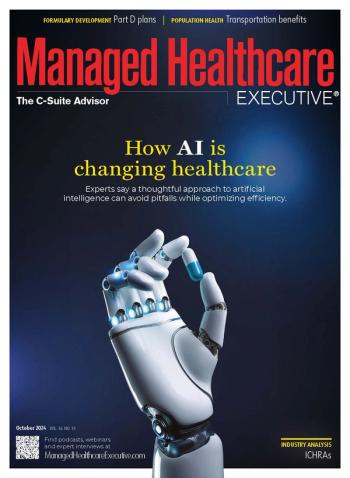
Insurance Still Top Factor Driving Healthcare Choices, But Online Reviews Grow in Importance, Study Finds
Half the health systems and 65% of doctors had no online reviews, which puts them at a disadvantage when millennials go shopping for healthcare.
Whether a provider accepts their insurance is still the leading factor for consumers selecting a doctor or hospital, but online reviews are rising in importance, especially among millennials, according to a new study.
Reputation, which this week released its
Once consumers have eliminated options that do not accept insurance or are too far away, online reputation and consumer reviews can make or break a decision, the report suggests. And that could be a problem for the 50% of health systems and 65% of physicians who had no online reviews.
Insurers should not assume that consumers generally, and millennials in particular, will blindly accept referrals to certain providers, according to Reputation’s Annie Haarmann, head of strategy and consulting, Healthcare and Life Sciences.
“They’re not really relying just on word of mouth or who their insurance provider tells them to go to,” she said. Even when patients receive a referral, they check out the physician online before making the appointment, Haarmann said.
The report highlights a “digital divide” as some physicians and health systems have become savvy about managing their online reputation and others are asleep at the wheel. The report found those with little or no online review presence are at a disadvantage among millennials, who are the generation most likely to use reviews when selecting a provider. Up to 50% of consumers use reviews when making a healthcare decision, the study found.
Findings were based on 348,000 customer reviews across 113,000 physicians and facilities.
Reputation uses reviews and artificial intelligence, developed over a decade, to drive an algorithm that calculates a reputation score of 0 to 1,000; the best-ranked health system in this year’s report, Universal Health Services, scored 729. According to a statement from the company, the algorithm measures nine elements that include many “stars” patients award a health system to how many reviews it receives. The AI capabilities capture both solicited an unsolicited feedback, from patient ratings to Facebook posts.
The Growing Importance of Reputation Management
How important is online reputation management for health systems?
According to a statement from the company, data scientists found that found that healthcare facilities with strong reputation scores have 1,290% more conversions on Google My Business (GMB) listings, which matters as more consumers turn to Google to search for providers. In this year’s rankings of the 25 largest U.S. health systems, for example, top performing systems had 232% more online, third-party reviews than those at the bottom. A world-class institution such as Cleveland Clinic, for example, landed in 15th place on reputation score largely because of a 3% rating on patient engagement.
"At our UHS Acute Care Hospitals and Behavioral Health Facilities, our reputation as the preferred healthcare provider in our served markets is important to us,” Celine Patterson, Lead, Online Reputation Management, Universal Health Services, said in the statement accompanying the report. “It is a key aspect of our mission statement, 'to provide superior quality healthcare services that patients recommend to their family and friends.' We have an unwavering focus on the consumer—making it easier for them to find us online and select us for their care.”
A Generational Divide
Haarmann said in an interview the findings highlight not only the digital divide, but generational differences in how consumers make healthcare decisions. Over the past decade, as more attention has been paid to “patient experience,” the ratings that matter most to consumers aren’t the ones collected and disseminated by the providers. Consumers have direct access to unfiltered feedback from current and former patients.
“A millennial is twice as likely to search online for a health care provider than a baby boomer,” she said. What this tells us is with the Triple Aim, the consumer experience piece is driven more by the information that is available online. Consumers are armed with more data than they've ever had before. And that allows them to make more educated decisions.
Also, she said, millennials want information such as online pricing and online scheduling. “They’re providing feedback around the experience itself—the interaction outside of the clinical experience. Whereas [with] baby boomers the feedback they’re providing is more focused on the physician. They’re looking at, ‘What are the factors that make that physician the right person for me—whether it’s the educational background, or the connection to a specific brand. It’s very interesting to see the differences in the two generations.”
COVID-19 Changes Everything
The pandemic has changed what consumers look for in online reviews: they want to see options for virtual care. They care about cleanliness, social distancing, and what steps are being taken to protect the staff. Two years ago, Haarmann said, the typical consumer knew little about hospital acquired infections. Now, safety protocols are among the first things consumers look for online.
“There's a lot more understanding around things like the waiting room, disinfection, and wearing protective equipment,” Haarmann said. “I think that will continue in the future, now that people understand that they can get these viruses anywhere.”
Newsletter
Get the latest industry news, event updates, and more from Managed healthcare Executive.























